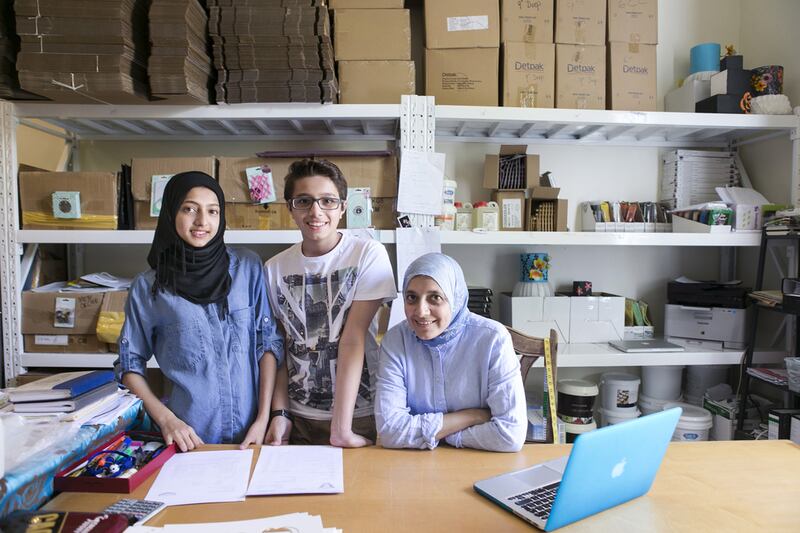“I love to see a young girl go out and grab the world by the lapels,” said the late American civil rights activist Maya Angelou.
But those lapels apparently don’t belong in the SME world – at least in this region.
According to Bayt.com, 94 per cent of young women looking for jobs in the GCC shy away from small or medium local private companies, preferring government and public sector roles.
That's lot of positions to turn down: SMEs account for 300,000, or 94 per cent, of all UAE companies, according to the Khalifa Fund for Enterprise Development.
Husna Paruk, 16, a South African year 11 student who studies at Jumeirah College in Dubai, is against working in an SME when she graduates – a surprising comment given that her own mother is a serial entrepreneur with a cake supply shop.
“In terms of SMEs, I think they’re great,” she insists. “Looking at my mother’s business has shone a different light over them. However, I would be against joining one over another well-known business. I feel SMEs are not always very successful, which means there’s a lot less job stability in your working life.”
Instead, Ms Paruk believes that gaining experience from a known business will make her more employable as its brand is easily identifiable.
“And it offers more opportunities – for example relocating overseas or even getting promotions to the next level – whereas an SME is usually based in only one country and only holds a certain number of job positions, so there’s little room for promotion,” she adds.
Data from the World Bank shows that only 17 per cent of firms in the Middle East have any female founders, compared to 35 per cent globally.
But Bev Mileham, general manager of the SME Biz Group, a training and team-building consultancy (which also has a female chief executive and has blossomed from a staff of two in 1993 to a workforce of 60 today), says SMEs offer huge chances to fresh graduates.
“What brings people to work is to know what the organisation’s purpose is and that is aligned with their own values and purpose. In a large company you can get lost, as part of a big wheel, and not be as connected to the big picture as in an SME, where you can be an intrinsic part of making a difference,” she says. She cites the case of a young UAE-born Pakistani lady who started as an intern in the company’s finance department and now works there full-time.
“She says she’s in her element and learning all the time,” adds Ms Mileham. “We make sure all employees, even interns, learn from their experience. It’s also very important people come in with the latest thinking so we can stay ahead of the curve in our industry. “
But Oxford Strategic Consulting’s senior analyst, Robert Mogielnicki, is not surprised at the results or Miss Paruk’s opinion. “The SME sector is a very risky employment option,” he says.
“Our research shows that 67 per cent of new start-up businesses are likely to fail and, from the 33 per cent of successful entrepreneurs, only a small 6 per cent will go on to create further jobs that will boost the GCC economy.
“This means that, unless women want to start their own venture – an inherently risky decision in itself – there are few encouraging options remaining in the SME sector.”
Lama Ataya, the chief marketing officer at Bayt.com, says there seems to be a “disparity between the expectations and reality of young women joining the workforce”, as well as a lack of hiring policies to encourage their employment.
In its white paper on first jobs for young women, Bayt.com found that although respondents would prefer government jobs, only 16 per cent were actually working in the sector in the GCC, with 41 per cent working for local private companies.
Benefits they were most keen on included flexible working hours (42 per cent) – an increasingly common demand from millennials worldwide, transportation (40 per cent) or a transport allowance (27 per cent), nursery or day care facilities (35 per cent). Only a quarter felt on-the-job training and support to be a priority.
Preferred industries included education, banking and finance and advertising, marketing and PR. This fits with Oxford Consulting’s own findings that banking and finance is the industry of choice for a fifth of UAE women.
“This might be related to the various professional environments afforded by the banking and finance sector – private, government and Islamic,” points out Mr Mogielnicki. “Moreover, banking and finance is an established sector with key links to strategic country goals like economic diversification.”
business@thenational.ae
Follow The National's Business section on Twitter





